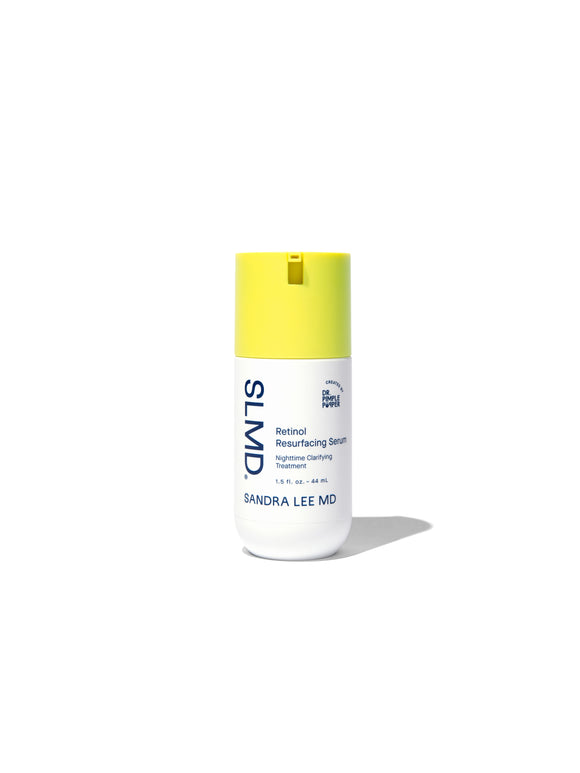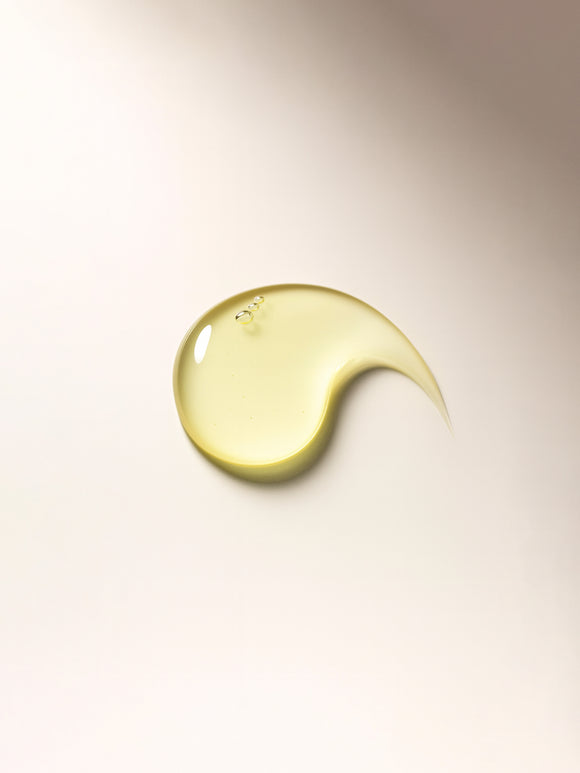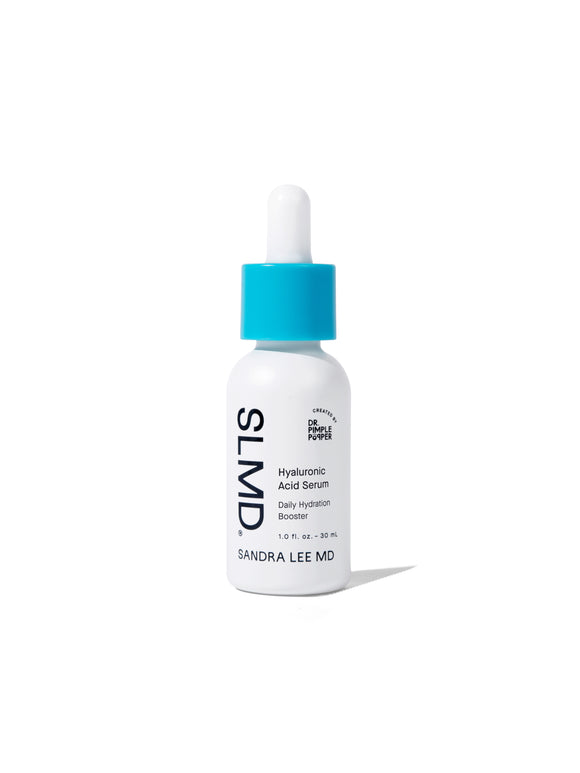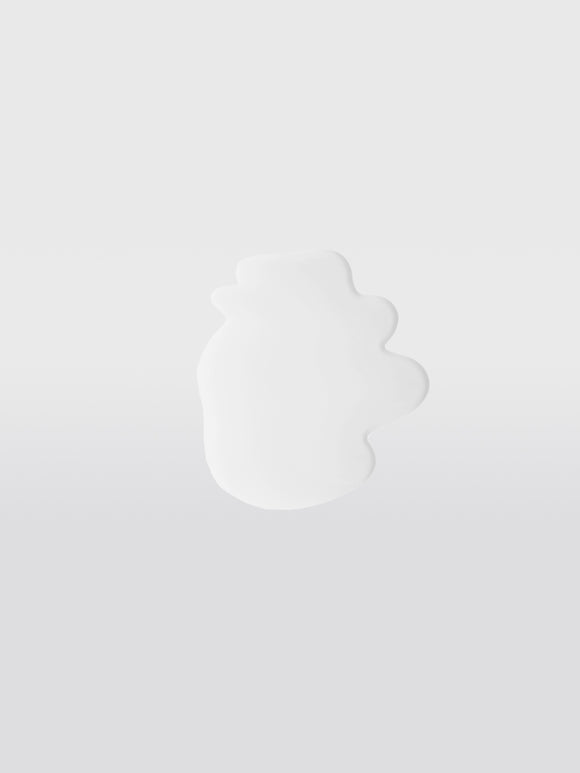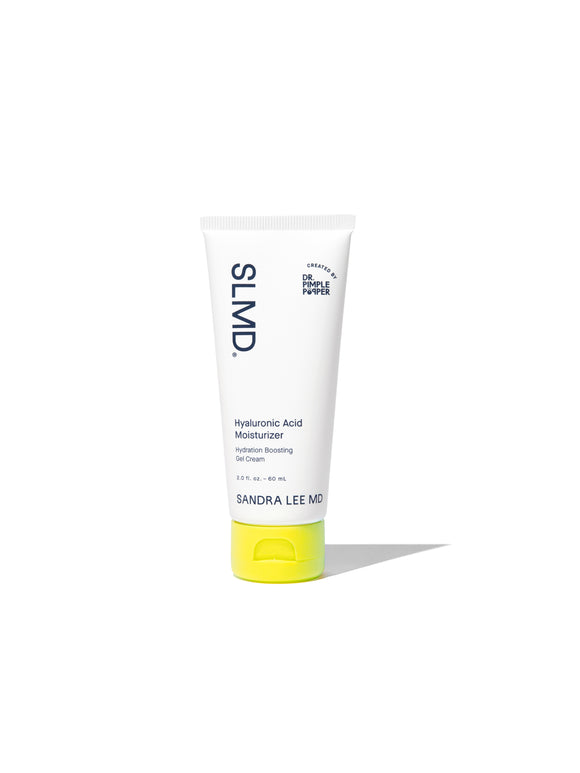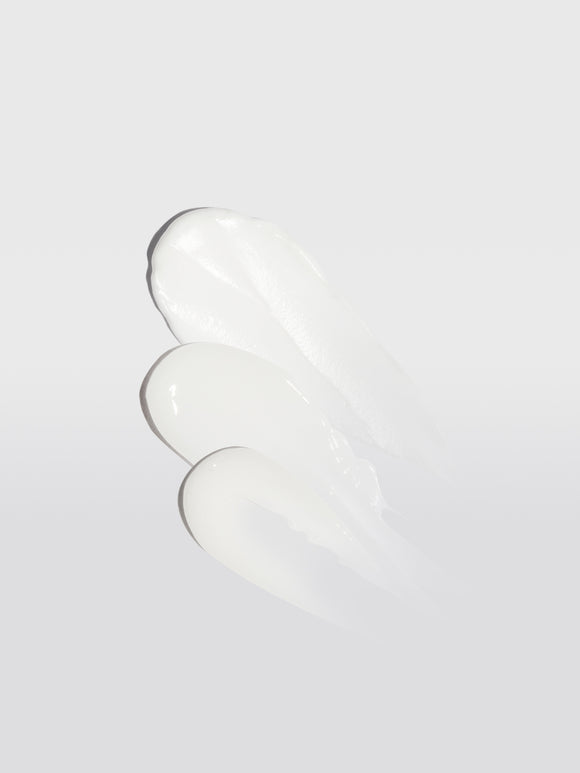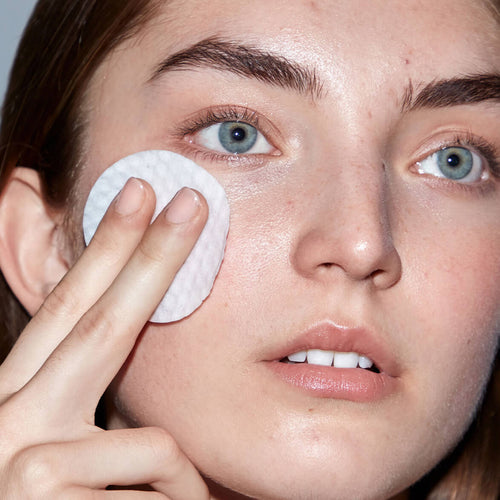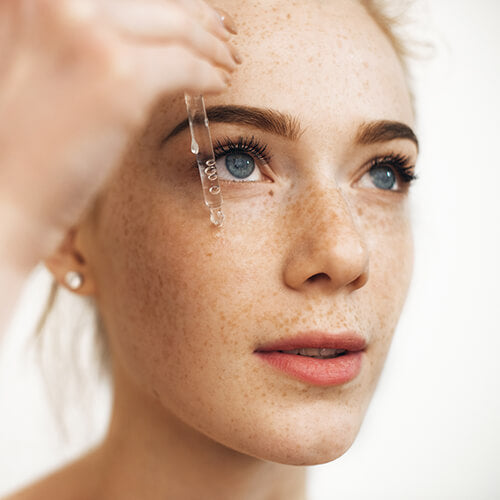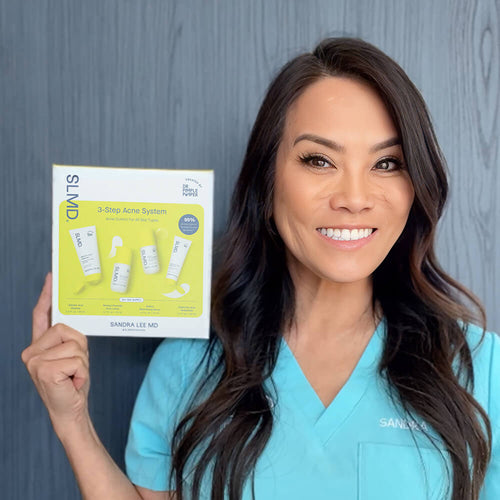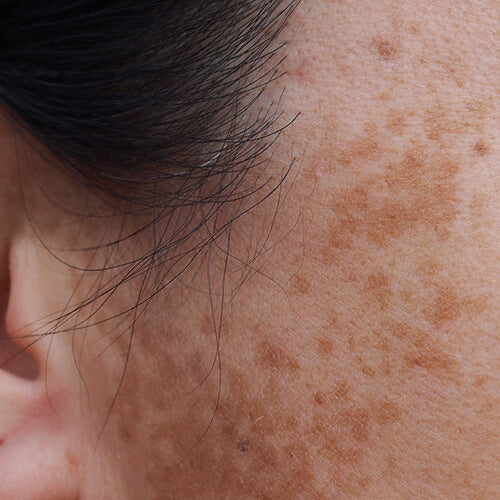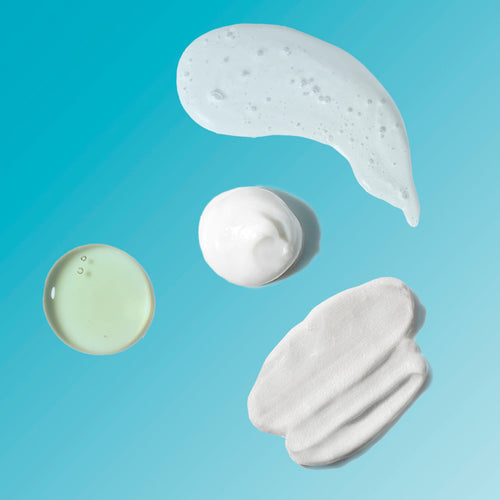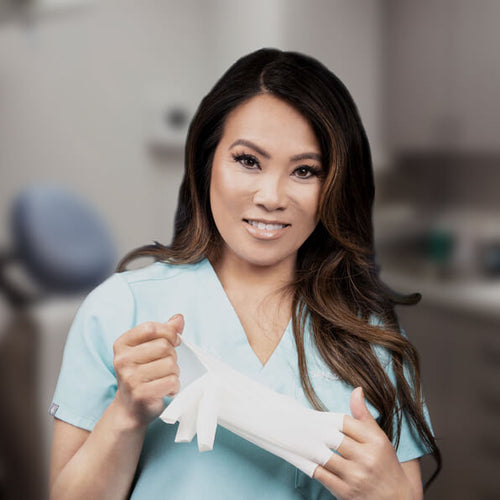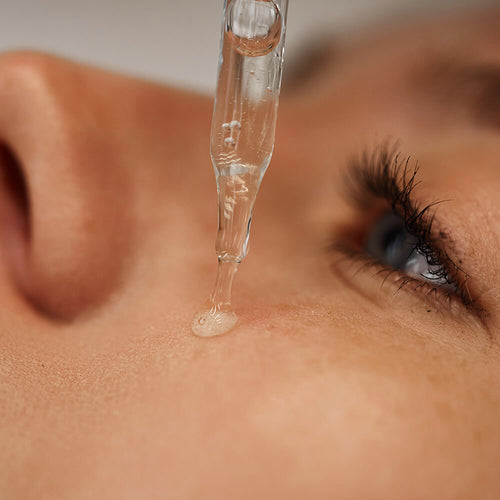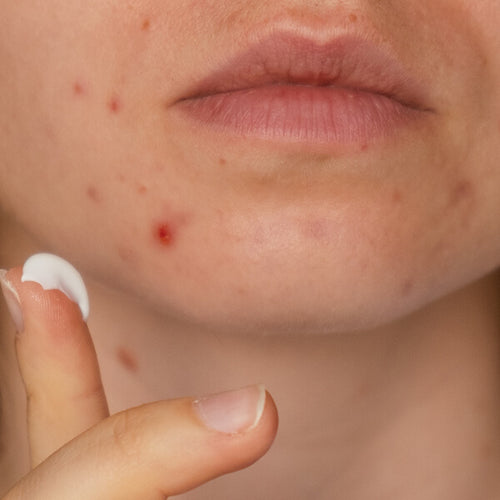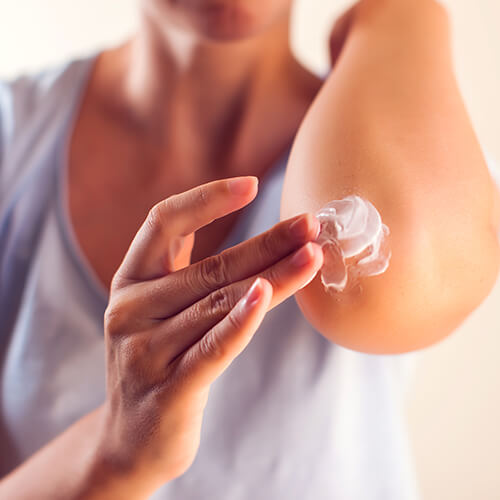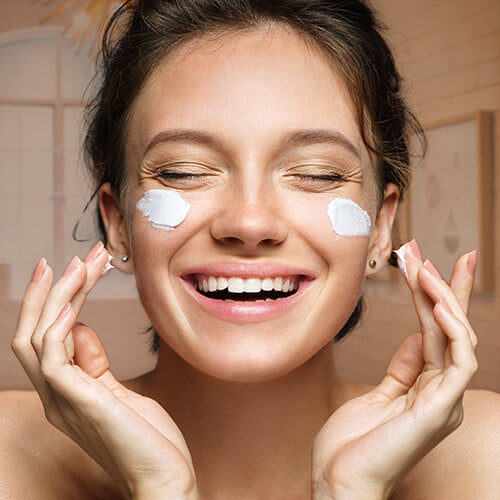
The Dermatologist's Guide to Combining Retinol and Hyaluronic Acid
Learn the dermatologist-approved layering secrets for anti-aging and acne treatment.
Published:
5 minute read
Retinol is universally recognized as an extremely effective treatment for both acne-prone and aging skin, but it can be strong. The resulting dryness and irritation from this active even has its own nickname: the “retinol uglies.”
Board-certified dermatologist Sandra Lee, MD (aka Dr. Pimple Popper) explains why hyaluronic acid is the perfect partner. This intensive hydrator helps keep skin healthy and balanced, no matter your skin concern. Here’s a full breakdown of this power pair—how they help your skin, and the exact method to combine them for maximum benefit.
Fast facts: combining retinol and hyaluronic acid
- Retinol is a powerful acne-fighting and anti-aging ingredient
- Hyaluronic acid is an essential hydrating, soothing humectant
- Combined correctly, these ingredients minimize irritation and maximize visible results
- Comfort and efficacy rely entirely on mastering the correct layering technique
Article Quick Links
How does retinol work?
Retinol is an over-the-counter retinoid—a group of potent antioxidants derived from vitamin A. This powerful ingredient speeds cell turnover and helps prevents collagen breakdown, perfect for addressing:
- Acne
- Fine lines
- Sun damage
- Hyperpigmentation
It can take some time for your skin to get used to retinol when you first start using it. Redness, flaking, and irritation might occur for the first few weeks, but should subside with time.
Try: SLMD Retinol Resurfacing Serum
What does hyaluronic acid do for skin?
Hyaluronic acid (HA) is a substance produced naturally by the body to hydrate and lubricate tissues—including the skin. This multitasking magician draws in and holds a significant amount of water, which makes it ideal for countering the common drying effects of retinol.
Hyaluronic acid works as a humectant (a substance that draws water in) to provide benefits such as:
- Hydrating: replenishes moisture content in the outer layers of the skin
- Soothing: helps calm irritation and reduce inflammation caused by potent actives
- Plumping: instantly hydrates and plumps the skin surface, reducing the appearance of minor lines
Try: SLMD Hyaluronic Acid Moisturizer, Hyaluronic Acid Serum
Dr. Pimple Popper's Retinol + HA Favorites
How to combine retinol and hyaluronic acid
Hyaluronic acid is one of the most important ingredients to pair with retinol. This partnership is vital to maintain a healthy skin barrier and ensure long-term consistency with your retinoid treatment.
Layering techniques: the critical first step
Dr. Lee says that it's best to apply retinol to dry skin to prevent irritation. Waiting a few minutes after cleansing ensures the product is absorbed gradually, which is key to avoiding unnecessary redness and flaking.
Once your skin is dry, the layering order depends on your sensitivity:
- To reduce irritation (the sandwich method). Apply a layer of hyaluronic acid serum, followed by the retinoid, and finish with a layer of moisturizer. The initial hyaluronic acid acts as a buffer.
- For maximum efficacy (standard method). Apply the retinoid directly to dry skin, allow it to absorb for several minutes, then seal the benefits in with your hyaluronic acid serum or moisturizer.
Dr. Pimple Popper tip: "Don't forget your SPF! Because retinoids increase your skin cell turnover, the very last step in your morning routine should be a broad-spectrum sunscreen."
Try: SLMD Daily Moisturizer with SPF 15
For aging skin: specific benefits
If you’re using potent well-aging ingredients like retinol, vitamin C and glycolic acid, your skin might become dry or irritated. Adding hyaluronic acid can help soothe your skin and keep it hydrated. This is especially important for aging skin, since dehydration contributes to wrinkling and loss of firmness.
Why hyaluronic acid is crucial for mature skin
- Firmness and anti-wrinkle support. Retinol boosts collagen production, while hyaluronic acid binds water to collagen, resulting in firmer skin and a reduction in the appearance of fine lines.
- Intense hydration and irritation relief. Hydrating hyaluronic acid helps alleviate the potentially drying effects of retinol, enhancing your skin’s equilibrium and fighting the dehydration that contributes to wrinkling.
For acne-prone or oily skin: specific benefits
If you’re treating acne with retinol and other strong ingredients like benzoyl peroxide, hyaluronic acid can help soothe your skin and counteract associated dryness and flaking. It’s important to keep skin hydrated while using acne treatment products, because skin that lacks water loses some of its barrier function, making you more susceptible to acne-causing bacteria.
This approach offers several benefits:
- Oil regulation. Hyaluronic acid helps regulate oil production by providing skin with the hydration it needs during acne treatment.
- Soothing redness and inflammation. Both acne and acne treatment can trigger inflammation, while hyaluronic acid supports the natural healing process.
- Supporting skin repair. Since hyaluronic acid supports collagen production, research suggests it's beneficial for reducing the appearance of acne scarring.
After using a retinol acne treatment, follow it up with a lightweight moisturizer containing HA.
Protocol for pairing with other acne actives
Retinol is an essential component for effective acne management, but you must be strategic when combining it with other powerful acne fighters like benzoyl peroxide (BP) or exfoliating acids (AHAs/BHAs).
Dr. Lee advises separating these powerful actives to ensure efficacy without compromising your skin barrier:
- AM/PM split: Use your retinoid at night (along with hyaluronic acid) and apply acids or benzoyl peroxide in the morning.
- Alternate nights: Dedicate one night to your retinoid and the next night to your exfoliating treatment. Never use both on the same night.
Try: SLMD AHA/BHA Swipes
Common questions about combining retinol and hyaluronic acid (FAQ)
Q: What is the best order for layering retinol and hyaluronic acid?
A: You can use hyaluronic acid both before and after retinol, depending on whether your goal is gentle application or maximum efficacy. For maximum gentleness (the "sandwich method"), apply it both before and after your retinol. For maximum retinol efficacy, apply it a few minutes after your retinol has had time to absorb.
Q: What ingredients should you not mix with retinol in the same routine?
A: You should not mix benzoyl peroxide or high-concentration exfoliating acids (AHAs like glycolic acid or BHAs like salicylic acid) in the same application session as retinol. These ingredients can increase the risk of over-exfoliation, leading to dryness, redness, and irritation. Always separate them into morning/night routines or alternate them on different evenings.
Q: Is hyaluronic acid or retinol better for wrinkles?
A: Retinol is better for long-term wrinkle improvement because it stimulates collagen production and increases cellular renewal. Hyaluronic acid is better for short-term plumping and hydration, which instantly reduces the appearance of fine lines. You need both: retinol to treat, and HA to support and hydrate.

Dr. Lee's Last Word
Retinol is an potent ingredient that works for both acne-prone and aging skin — but it can cause some drying and irritation. A humectant like hyaluronic acid will help alleviate any flaking or redness...and the added hydration means you're going to see enhanced results from your retinol, too.



